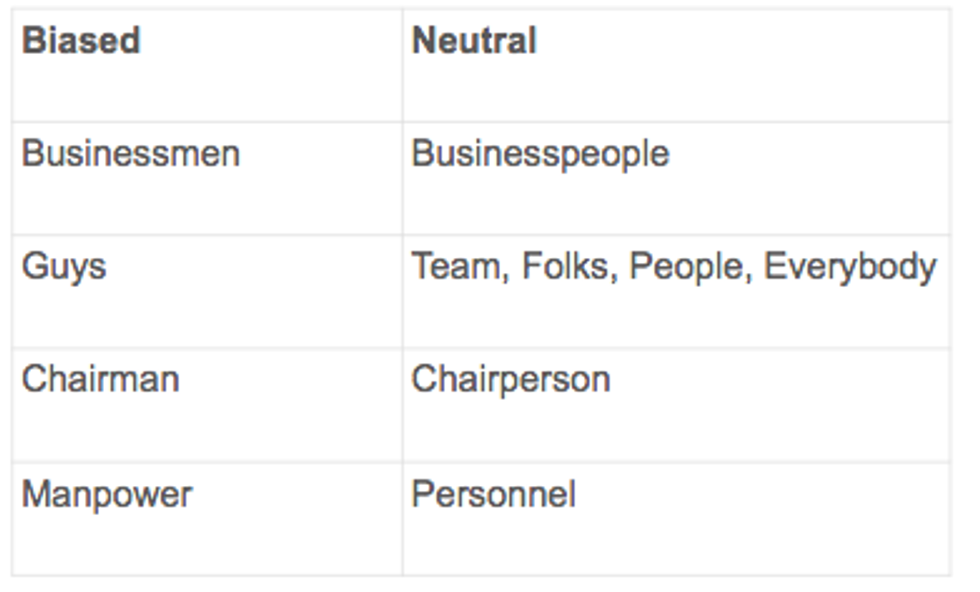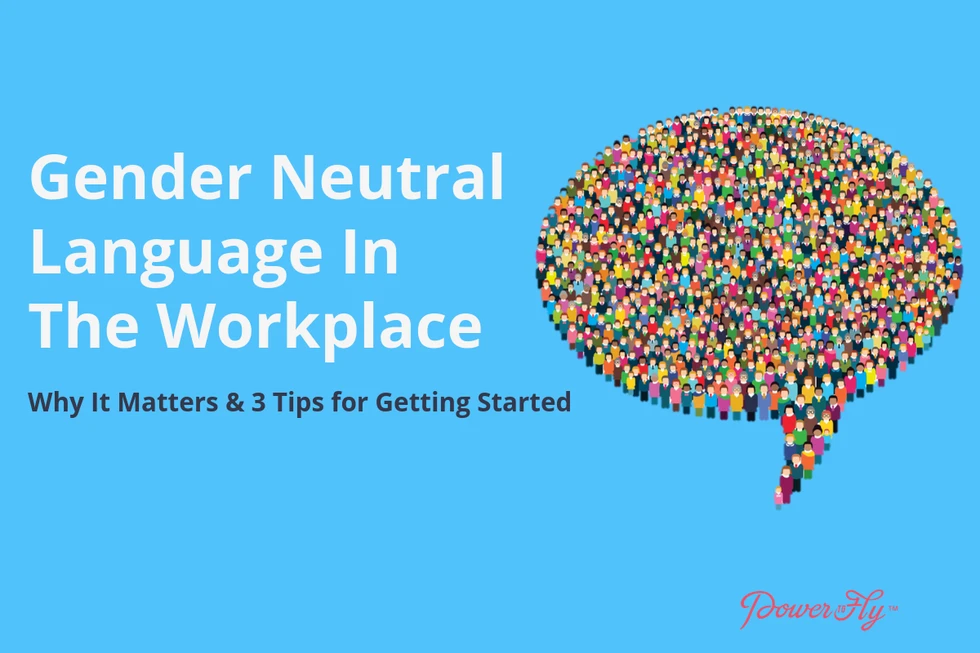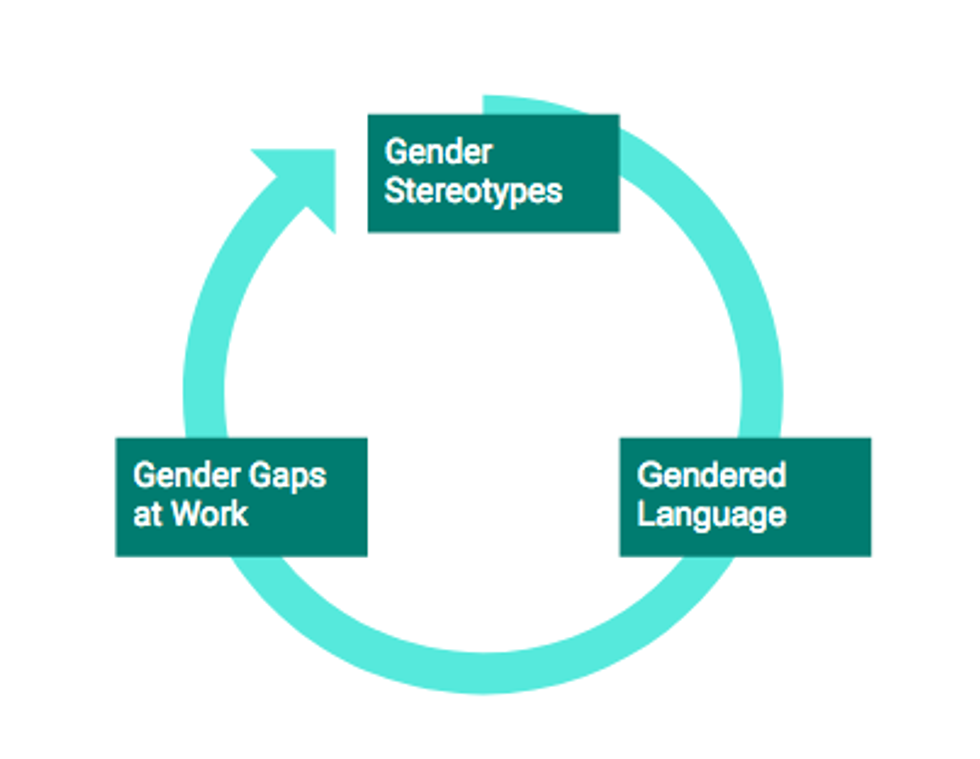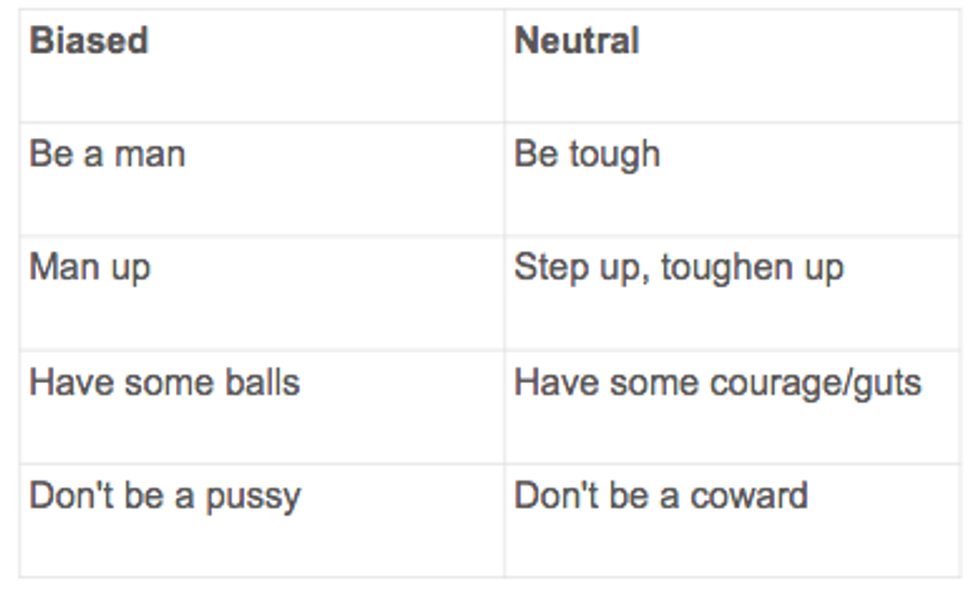I've found that requests for gender neutral or inclusive language are often met with eye rolls. And not just from men.
I should know - as a college sophomore, I rolled my eyes big time when my Psychology of Gender professor said that using terms like "mankind" helped to sustain gender inequality. I still have my notes to prove it: "Obviously mankind refers to men and women." It wasn't until she had us engage in a brief thought experiment that I really understood her point.
It was simple: what do you picture when you think of "man" discovering fire?
Now tell me you didn't just picture something like this:
If you didn't, you're a better man person than I am. Multiple studies have shown that when we hear masculine generic terms (man, mankind, congressmen, etc.), that are meant to also include women, we exclusively picture men. Why's that a problem? When we subconsciously give men credit for humanity's achievements or picture men but not women, we downplay women's contributions to society and limit women's opportunities (if she can see it, she can be it!).
Because this happens subconsciously, it can be hard to convince folks (even women) that it's a problem, but once we understand how our words are part of a feedback loop that affects our thinking, it's hard to argue against change.
Not only does the use of masculine generic terms reflect problematic societal norms, it also helps keep them intact:
Back up, what's gender neutral language?
Gender neutral language, also referred to as gender inclusive language, means "speaking and writing in a way that does not discriminate against a particular sex, social gender or gender identity, and does not perpetuate gender stereotypes."
Most often, it means avoiding masculine pronouns (he, him, his) when referring to a subject that could be of any gender and masculine generic terms (congressmen, firemen, etc.) when referring to groups of people that could include men, women, and non-binary folks.
Why should you foster a company culture that values gender neutral language?
If you want your company to reap the benefits of diversity, then you need to breakdown implicit bias and stereotypes, not reinforce them. Changing the language we've all been taught is "normal" challenges the inherent assumption that men are the default or the norm. It's just one small way you can make women and non-binary folks feel welcome in spaces that were traditionally designed for men. And in doing so, help everyone on your team reach his their potential.
So, how do you get started?
Breaking deeply ingrained habits is always difficult (I'd be lying if I said I never use "guys" to refer to mixed-gender groups), and you'll no doubt get some pushback along the way… but rather than giving your employees lists of what they can and cannot say, try changing your own word choice first; as a company leader, you have the power to drive change across your organization just by changing your own behavior.
Here are 3 tips to keep in mind:
1. Embrace The Singular "They"
Contrary to what my high school English teacher told me, the English language has a long history using "they" as a third-person singular pronoun - if it was good enough for Chaucer and Shakespeare, it's good enough for me. In recent years, the singular they has gained acceptance once more, so much so that in 2015 it was embraced by the Washington Post style guide and named the American Dialect Society's word of the year. Although "he or she" and "s/he" have been popular alternatives to the generic "he" for quite some time now, they reinforce the gender binary, while the singular they helps ensure non-binary colleagues don't feel left out.
Don't Say:
If an employee wishes to go on vacation, he or she must schedule it two weeks in advance.
Do Say:
If an employee wishes to go on vacation, they must schedule it two weeks in advance.
2. Swap Out "Man" Words For Neutral Alternatives
Most typical "man" default words have already been changed for gender neutral options, but others still tend to fly under the radar. Keep your eye (or ear) out for these common terms, and swap them for gender neutral alternatives.

3. Eliminate Gender-Biased Expressions
We often throw phrases around without considering their origins and what we imply when we use them. Seeing the phrases below written down, it almost feels absurd to be reminding folks that they're not ideal for the workplace, but I've heard them more times than I can count in my own professional life. I've probably used them a handful of times as well.
As a leader at your organization, what do you imply when you use these expressions? That you buy into the bogus stereotypes that being a man is equivalent to being tough, and being a woman means you're inherently emotional and weak. Not exactly the kind of thoughts you want to champion if your goal is to help your entire team reach its potential. The kind of thinking perpetuated by these phrases isn't good for men, either, as it's yet another way we tell men that they're not supposed to be vulnerable, which is actually essential for building strong teams!
Alternatively, what do you imply when you say less frequently heard phrases like "don't be a coward"? It signals to employees that you don't tolerate sexist language - and it might get them thinking about their own word choice, or maybe even lead to a conversation. You can bet it will be more effective than just handing them a list of phrases they can't say.
Summing It Up - Not Rules, Just Respect
Some types of gendered language may feel much more offensive than others (i.e. "Don't be a pussy" vs. calling a group "guys"), but at their core, they all reflect (and help to perpetuate) sexism. Unconscious bias is real and manifests in the language we use.
Using gender neutral language is not about policing free speech or enforcing rules. It's about questioning your assumptions, considering the sexist notions that contributed to these speech patterns in the first place, and doing your part to break the feedback loop. It's about paying attention to signs of underlying sexism and taking them seriously, rather than dismissing them with, "it's just an expression."
And if you're a traditionalist who refuses to embrace the evolution of language, careful - thy company might just get left behind.
- 1.2 Million Searchable Profiles
- Companies Average 3 Hires In 6 Weeks
- Lift Your Employer Brand By 60%






